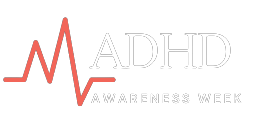October is ADHD Awareness Month
Canadians are being asked to Participate in “The 2016 ADHD Challenge”
Help raise ADHD awareness, show off your skills and help raise funds for ADHD Awareness and advocacy work across Canada, all at the same time!
The Centre for ADHD Awareness, Canada (CADDAC) urges every Canadian to participate in a challenge of their choice for the month of October in an effort to raise awareness of ADHD and help raise funds for ADHD awareness and advocacy work across Canada. Whether you are 6, 16 or 60+ we want you to decide on a personal challenge that you want to complete during the month of October, ADHD Awareness Month, and complete the challenge with the support of your sponsors. For more details access the CADDAC web site
2016 Awareness Campaign – ADHD in the Canadian Justice System
The Center for ADHD Canada is drawing attention to an issue of importance that has long been ignored by the Canadian justice system. Incident rates of ADHD in the correctional population are 5 times greater than what we see in the community and ten times greater for youth. Yet little has been done to introduce assessment and treatment protocols within justice and correctional systems across Canada. This is occurring even though research and on site experience has shown there are significant benefits to doing so.
CADDAC recently launched and shared their new paper, “The Benefits of Recognizing and Treating ADHD in Canadian Justice and Corrections Systems”, with Ministries of Justice and Corrections, law/bar associations, and courts with the hope that increased awareness will result in a dialogue on the implementation of screening, assessment and treatment of this disorder throughout the system. Even though this topic may make some in the ADHD community uncomfortable CADDAC feels that it is high time that we shine a light on this issue so better solutions can be found. Research has shown us that the benefits of treatment far outweigh the benefits of punishment for everyone involved.
Often in this country ADHD still remains undiagnosed and under treated. ADHD symptoms of impulsivity along with common coexisting executive functioning impairment and emotional dysregulation create general impairment in self-regulation. When we combine all of this with the self- medication of unrecognized symptoms through substance use, it is easy to understand how those with ADHD become at a higher risk for involvement with the criminal justice system.
Implementing screening and assessment procedures within all areas of the justice system would increase the chance that those with ADHD could be flagged and receive appropriate treatment.
Early detection and treatment of ADHD would benefit offenders and society, and reduce costs to the justice system by:
- Potentially altering a youth’s trajectory into offending by early intervention
- Reducing substance abuse, criminal behaviour by 32-41%, and recidivism by 30%4
- Improving disruptive behaviour and aggression in inmates while incarcerated with the added benefit of reducing additional time on their sentences.
- Improving treatment for coexisting mental health disorders, suicidality and substance abuse, which commonly co-occur with ADHD and are much more effectively treated if ADHD is treated first
- Allowing for better access to rehabilitation and education programs when incarcerated
In summary, the reduction in criminal behaviour, improved behaviour while incarcerated and improved overall rehabilitation of inmates will increase their and their family’s quality of life, reduce costs to the justice system, benefit the communities they return to and Canadian society in general.
Access our Paper “The Benefits of Recognizing and Treating ADHD in Canadian Justice and Corrections Systems”: English French
Access our Key Messages: English French
Access our Media Release: English French
Access our Key Messages PPT with information for officers, councils, courts, and corrections: English French
Did you miss our 2015 Campaign Message? Understanding ADHD as a Disability in the Post-Secondary Environment
Approximately 4% or 150,000 young adult Canadians are impacted by ADHD symptoms often impairing their success in post-secondary education. And although recent success in ADHD awareness and support has allowed more students with ADHD to access post-secondary education allowing them to reach their academic and career potential some post-secondary institutions still lack an understanding of the disorder.
The Canadian Socioeconomic Costs of ADHD
The impairing effects of ADHD also increase costs to healthcare, education, labour, social services and the justice system. They impede the attainment of human and social capital, resulting in increased socioeconomic costs for Canada. These costs are further fuelled by the continued under-diagnosis and under-treatment of ADHD. A shocking 90% of adults remain untreated, despite the far-reaching impact of ADHD.
CADDAC needs your help! Get Involved and let people know that
ADHD matters to You!
Do you know someone with ADHD? Chances are that you do. Take some time to know the facts, understand the reality, and be part of a movement to educate other Canadians about something so common, yet so misunderstood.
CADDAC is calling for Canadians to BECOME AWARE and INFORMED about ADHD!
